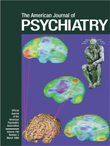To the Editor: We read with great interest “Persistent Delirium Following Cessation of Heavy Alcohol Consumption: Diagnostic and Treatment Implications” by David Hersh, M.D., et al.
(1). Although the medical workup of the case is generally impeccable, there are a few shortcomings that we would like to comment on:
1. There was only one application of breath alcohol level on admission. It is desirable to repeat the test several times in the first 24 hours of detoxification. We have been surprised more than once to note that the blood alcohol level may initially rise in subsequent readings before it declines.
2. There was no mention of urine drug screen for this case. Alcoholism in isolation is a rare condition today. Most alcoholics will often abuse one or more additional substances. While cocaine and marijuana may not have any impact on the alcohol withdrawal syndrome, the sedative hypnotics or anxiolytics can significantly alter the course of withdrawal symptoms. There are occasions when patients fail to report the coexistence of such substances with alcohol consumption.
3. In their differential diagnosis, the authors discuss many of the relevant causes of protracted delirium tremens. We believe, in this case, the treatment strategy may have contributed to the clinical picture of a persistent delirium tremens.
The patient was an elderly man whose metabolism of many drugs, including benzodiazepines, had significantly diminished. The patient was considered a moderate-to-severe risk for alcohol withdrawal syndrome. Treatment with chlordiazepoxide, 50 mg every 4 hours, began. This was an extremely high dose for a 71-year-old man. The authors note that the first 3 hospital days were relatively uneventful. Nevertheless, the patient received 350 mg of chlordiazepoxide on each of the first 2 days of treatment and 250 mg on the third day. Hence, a 71-year-old man received 950 mg of a long half-life benzodiazepine with many active metabolites over 72 hours.
The delirium persisted despite the high doses of a benzodiazepine. Once the delirium was established, the authors noted that the addition of higher doses of chlordiazepoxide or lorazepam produced either extreme sedation or a worsening of the confusional state. On the eighth hospital day, the patient was still receiving benzodiazepines when oral haloperidol was begun. Therefore, large doses of benzodiazepines initially may lead to delirium in an elderly man.
Attributing elevated pulse and blood pressure solely to alcohol withdrawal syndrome, when other withdrawal syndromes (such as from β blocker, clonidine, a sedative hypnotic, or an anxiolytic) could have also contributed, may ultimately cause secondary delirium. Susceptible individuals may be prone to develop delirium by withdrawal (undermedication with benzodiazepines) or toxicity (overmedication with benzodiazepines). Therefore, in addition to the urine drug screen, obtaining a careful drug history is critical to the successful management of a complicated alcohol detoxification. Use of a short-acting benzodiazepine is another suggestion that would limit the complicating factors of overmedication with benzodiazepines.

